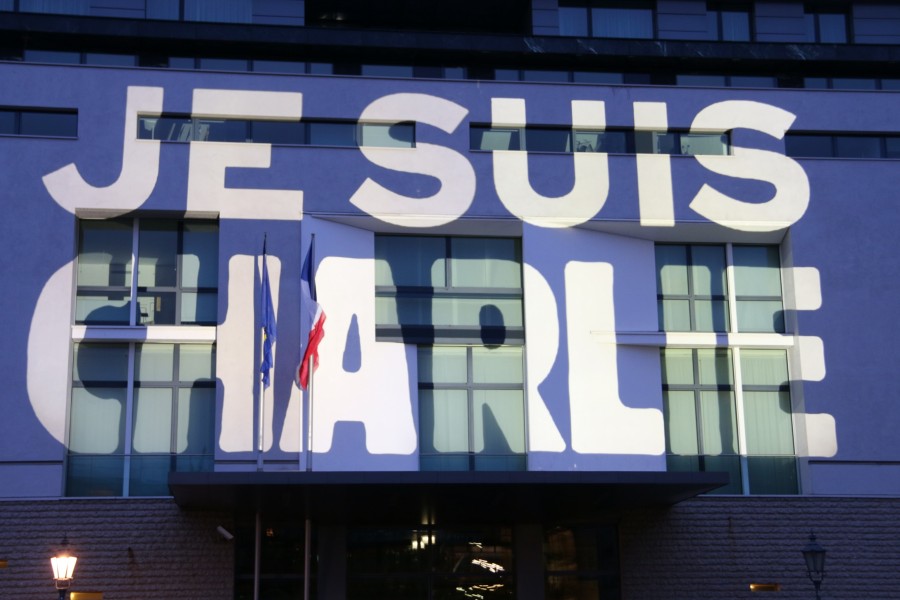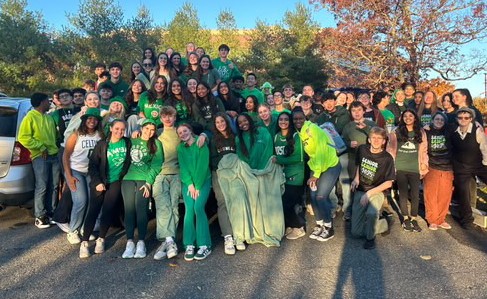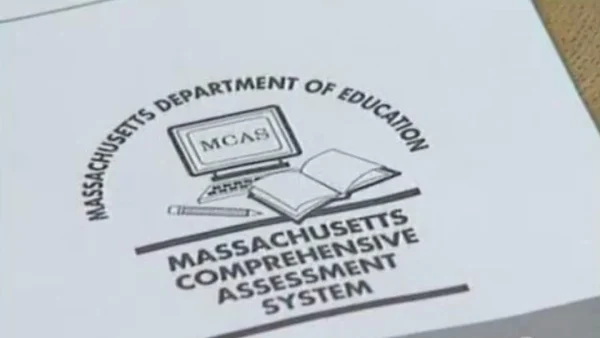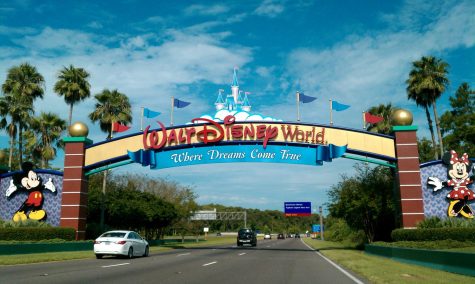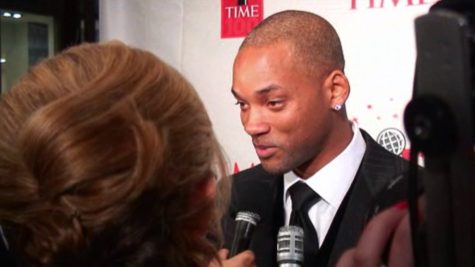Attack in France unites supporters of free speech
STAFF EDITORIAL
Wikimedia Commons/Creative Commons license
The phrase, translated as “I am Charlie,” has come to symbolize the right to free speech.
Sometimes it seems as if any time attention is turned to the news, there is something about a city being bombed or a terrorist lurking in the shadows of a country.
Turning on the television this past week proved no different.
Two masked gunmen, now known to be brothers Cherif and Said Kouachi, stormed into the headquarters of Charlie Hebdo (translation: Weekly Charlie), a French satirical magazine, and killed 12 people (10 journalists, two police officers) and critically injured five more on Jan. 7.
This led to a two-day chase and search throughout France, leading to the death of another police officer, before a final hostage situation on Friday, when four more civilians died before the terrorists were killed by police.
All of this because of political cartoons involving Muhammad.
Amedy Coulibaly, who seized a Paris Kosher market and took hostages before he, too, was killed by police commandos, and the two Kouachi brothers may be at the center of this situation, but there is still a threat of other attacks, including one by Coulibaly’s partner, Hayat Boumeddiene, who according to various news outlets has possibly escaped to Syria.
According to The Washington Post, in a country of nearly a half-million Jews, France has sent 10,000 troops across the country to protect Jewish sites from potential attacks—a testament that fear is very much embedded in the national psyche.
But it is also a driving force for change.
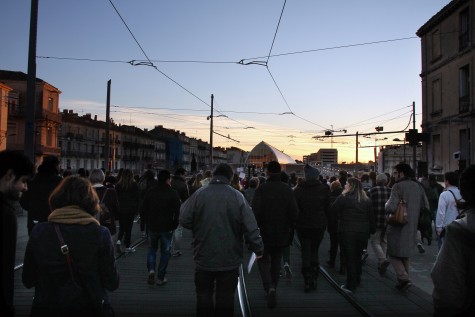
Charlie Hebdo printed the controversial cartoons on the basis of one simple principle—freedom of the press.
Many important world leaders joined a crowd of 3.7 million people in France on Sunday to express that they will not let these acts of terrorism intimidate them. The motto “Je suis Charlie,” meaning both “I am Charlie” and “I follow Charlie,” has been adopted by supporters to show their support for both a free press and the principle of freedom of expression.
It is depressing to think how terrorism has taken hold in the world, leading to needless destruction and death. A total of 17 people died over a political cartoon that one group of people found offensive enough that it merited murder.
Innocent editors, police officers, and even bystanders were victims of this most recent act of terror. These people had families, lives, and futures just like any other person, and it is tragic that they died over a concept such as free speech.
Yet there is beauty to this incident. The motto “Je suis Charlie” has spread worldwide, providing a sense of unity in the journalism world, not to mention among the millions of people who have honored those who sacrificed their lives.
Humanity can, and always will, overcome the struggle that a handful of extremists bring about. The chaos terrorism brings strikes fear, but it does not tear people apart; it brings them together.
Unbowed and buoyed by support from around the globe, Charlie Hebdo published a new edition on Tuesday. On the cover is another cartoon of Muhammad, who holds a sign reading “Je suis Charlie.” Over his head are the words “tout est pardonne”—all is forgiven.

